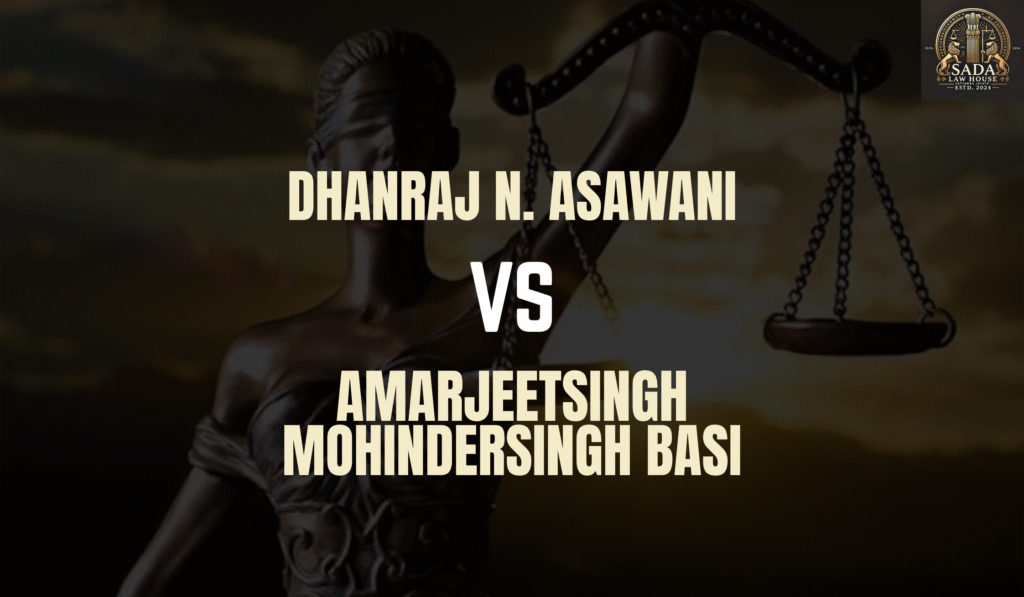Dhanraj N. Asawani v. Amarjeetsingh Mohindersingh Basi & Ors. (2023): Right of Shareholder to Initiate Criminal Proceedings in Co-operative Bank Scam
- Dr. D.Y. Chandrachud, Justice J.B. Pardiwala, Justice Manoj Misra
- 25 July 2023

Introduction
This case dealt with a critical legal issue — whether a shareholder or former director of a co-operative society can initiate criminal proceedings under the Criminal Procedure Code (CrPC) when special provisions under the Maharashtra Co-operative Societies Act, 1960 exist. The question before the Supreme Court was whether Section 81(5B) of the Act barred any person other than an auditor or Registrar from filing an FIR in cases of financial irregularities in co-operative banks.
Facts of the Case
The appellant, Dhanraj N. Asawani, filed FIR No. 806/2019 against the CEO and Chairperson of Seva Vikas Co-operative Bank for offences under Sections 420, 406, 409, 465, 467, 468, and 471 IPC read with Section 34 IPC.
The FIR was based on an inspection report alleging that loans were given to ineligible borrowers, funds were misappropriated, and recovery measures were mishandled, causing massive NPAs.
The Bombay High Court quashed the FIR, holding that only the auditor or Registrar, under Section 81(5B), could lodge such FIRs.
Issues
Does Section 81(5B) of the Maharashtra Co-operative Societies Act bar shareholders from filing FIRs in cases of financial irregularities?
Do special provisions under the 1960 Act override the general provisions of Section 154 CrPC, which allows any person to report a cognizable offence?
Judgment
The Supreme Court allowed the appeal and restored the FIR. Key findings included:
Section 81(5B imposes obligations, not prohibitions: The duty of auditors/Registrars to file FIRs does not mean others are barred from doing so.
No express or implied prohibition: The Act does not contain language excluding shareholders or individuals from initiating criminal law.
CrPC prevails in absence of express bar: Under Section 4 CrPC, criminal law applies to all offences unless explicitly excluded, unlike MCOCA or TADA which contain overriding clauses.
Principle of criminal law: As reaffirmed in A.R. Antulay v. R.S. Nayak, locus standi is not a requirement in criminal law — any person can set the law in motion.
Public interest & accountability: Restricting FIRs only to auditors/Registrars would hamper transparency and undermine depositors’ rights.
Accordingly, the Supreme Court set aside the Bombay High Court ruling and reinstated FIR No. 806/2019.
Conclusion
The Supreme Court clarified that Section 81(5B) of the Maharashtra Co-operative Societies Act does not prevent shareholders from filing FIRs. Every citizen retains the right to report cognizable offences under the CrPC. The judgment strengthens public accountability in co-operative banks, ensuring that financial frauds affecting depositors and shareholders can be promptly investigated.
Case Laws







